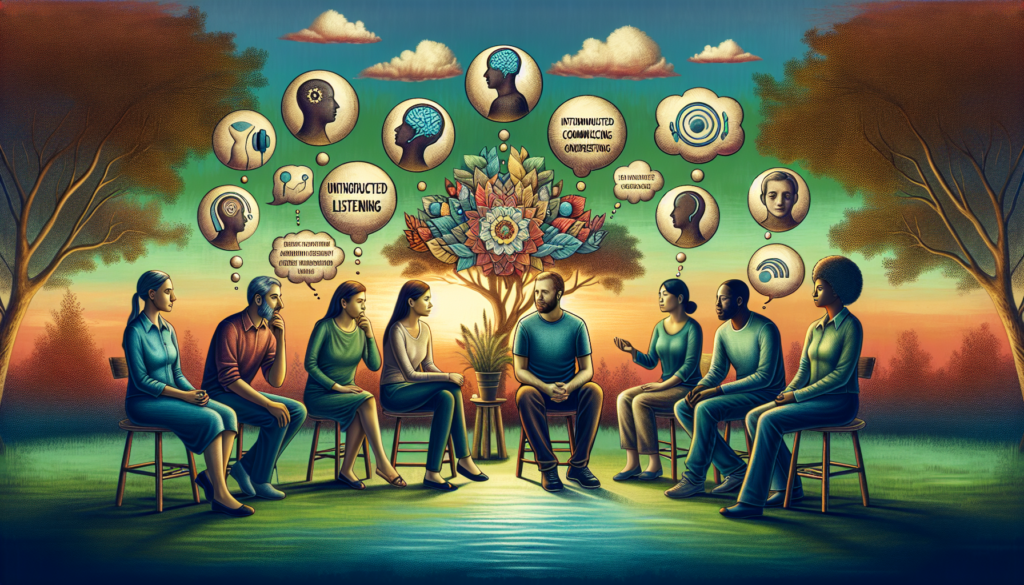“`html
What is Effective Listening Skills?
Effective listening skills are essential for personal and professional success. In a world where communication is key, being able to listen effectively can significantly enhance relationships, improve understanding, and foster collaboration. In this blog, we will explore what effective listening skills are, their importance, common barriers, and how to develop these skills. Let’s dive in!
What Are Effective Listening Skills?
Effective listening skills refer to the ability to accurately receive and interpret messages during communication. It goes beyond just hearing the words spoken by someone; it involves fully engaging with the speaker to understand their message, emotions, and intentions. Here are some components of effective listening skills:
- Active Engagement: Being mentally and physically involved in the conversation.
- Comprehension: Understanding the message being conveyed.
- Non-verbal Communication: Using body language, eye contact, and facial expressions to show attentiveness.
- Feedback: Responding appropriately to confirm understanding.
Importance of Effective Listening Skills
Understanding the significance of effective listening skills can motivate you to improve them. Here are some reasons why they are important:
- Builds Stronger Relationships: When you listen effectively, you show that you care about the other person’s thoughts and feelings, leading to deeper connections.
- Enhances Learning: Listening helps you absorb and understand information better, which is vital in both educational and work settings.
- Improves Problem Solving: Effective listeners often come up with better solutions by fully understanding the issues at hand.
- Increases Respect: Listening attentively earns you respect from others, as it demonstrates empathy and understanding.
Common Barriers to Effective Listening
Despite its importance, there are several barriers that can hinder effective listening. Recognizing these obstacles is the first step to overcoming them. Common barriers include:
- Distractions: External noises or internal thoughts can divert your attention.
- Prejudgment: Forming an opinion before fully understanding the speaker’s message can lead to misinterpretation.
- Emotional Interference: Personal emotions may cloud judgment and affect how you respond to what is being said.
- Listening Style: Some people may have a passive listening style, which can hinder effective communication.
How to Develop Effective Listening Skills
Improving your listening skills may take practice, but it is a worthwhile investment. Here are some practical tips to enhance your effective listening skills:
- Be Present: Focus on the speaker, set aside distractions, and give them your undivided attention.
- Practice Active Listening: Show that you’re listening through verbal affirmations like “I see” or “Go on.” Nodding your head can also reinforce that you’re engaged.
- Ask Questions: If you don’t understand something, ask questions for clarification. This shows you are interested and want to understand better.
- Summarize What You Hear: After the speaker has finished, summarize their main points to confirm your understanding.
- Watch Non-verbal Cues: Pay attention to the speaker’s body language and tone. It can give you insight into their feelings and intentions.
Practicing Effective Listening in Daily Life
Incorporating effective listening into your daily interactions can be highly beneficial. Here are ways you can practice effective listening in your everyday life:
- In Conversations: When having a conversation, make a conscious effort to listen more than you speak. Show interest in what the other person is saying.
- In Meetings: During meetings, take notes and ask questions to clarify points. This demonstrates your engagement and commitment.
- In Educational Settings: In a classroom or learning environment, actively participate by listening to lectures and engaging with peers.
- In Family Gatherings: Use family time to practice listening by giving your loved ones a chance to share their thoughts and experiences.
Conclusion
Effective listening skills are crucial for enhancing relationships, understanding complexities, and facilitating personal and professional growth. By recognizing the components, importance, and barriers to effective listening, you can take actionable steps towards becoming a better listener. Remember, it’s not just about hearing words but truly understanding the message behind them. Implementing the tips shared in this blog will pave the way for more meaningful communication in every aspect of your life.
The journey of becoming an effective listener is ongoing; with practice and commitment, these skills can transform the way you communicate, creating stronger connections with those around you.
“`


